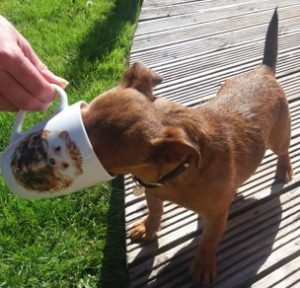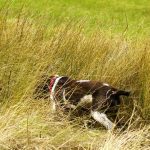It Is Safe For My Dog To Drink Tea?
Many of us enjoy a lovely hot cuppa, especially after a cold winter walk. Drinking tea isn’t just warming and comforting – it’s a British institution – but can dogs safely drink tea too? Holidays4Dogs finds out.
Boiling the kettle and sharing a cup of tea with friends, or loved ones, happens in millions of households every day. A cuppa is a sign of empathy, sympathy, celebration and solidarity. Bonding over a cup of tea with strangers, or people in need, is a powerful tonic – so you may wonder whether you can share this warmth with your four-legged pal.
Caffeine
Generally speaking, allowing your dog to drink tea very occasionally, is unlikely to cause any long-term issues. However, tea contains caffeine which can be toxic to dogs in large quantities. Caffeine found in tea plants stimulates the nervous system of humans who consume it. Dogs are much more sensitive to this and, therefore, it is wise to avoid giving your dog tea which contains caffeine.
Side effects of excess caffeine in dogs include;
High blood pressure
Restlessness
Hyperactivity
Vomiting
In, some cases caffeine can cause seizures. Even de-caffeinated teas are not always completely caffeine-free. In addition, milk and sugar are not good for dogs. Because some dogs are lactose intolerant, milk can cause stomach upsets. Sugar is not good for dogs, since it contributes to obesity, diabetes and heart disease.
In addition to caffeine, tea contains tannins which can be toxic to dogs in large volumes.
Alternatives to the good old British cuppa
Drinking the odd cup of tea is unlikely to cause any long-term problems, but other safer alternatives are actually good for your dog’s health – (and ours too!).
Chamomile tea – this tea is a natural sedative and therefore has a calming effect on people and dogs. It could help to calm anxious dogs and it has the added benefit of boosting the immune system.
Rooibos tea – another lovely tea full of antioxidants that are good for preventing heart disease as well as diabetes. It is also said to sooth itchy skin if applied topically.
Peppermint tea – this is a great tea for freshening your pooch’s breath. As well as this it’s a muscle relaxant, so it can relax the nasal cavity which helps improve breathing. Ideal perhaps for short nosed dogs.
Ginger tea – this is an anti-inflammatory tea as well as having great antioxidant properties. It has long been regarded as a good remedy for nausea.
You can also purchase tea specifically made for dogs – like this one, Doggy’s cuppa – detoxing brew for dogs.
If you are interested in giving your dog a healthy dog treat to go with his cuppa – you can check out our article on healthy dog treat recipes.
How to Serve Your Dog Tea
As we have said, normal caffeinated tea – although not harmful in small quantities – is probably best avoided. Dogs will enjoy safer herbal teas just as much. It is also advisable to leave out milk, or sweeteners. If you like, however, you could add a little honey for a little extra taste that your dog is sure to enjoy.
Finally, while we might love a steaming hot cuppa between our palms, your dog could quite easily be scalded drinking very hot tea. Simply add a little cold water to the brew, or allow it to cool until it’s tepid.
Now then…shall we put the kettle on?…




